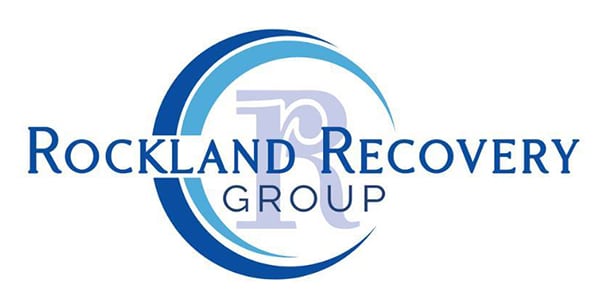Schizoaffective disorder is a complex mental health condition that requires a specialized approach to treatment. The hallmark sign of schizoaffective disorder is the presence of both schizophrenia symptoms and symptoms of mood disorder. These complex symptoms are what make schizoaffective disorder hard to treat.
Schizoaffective disorder can present with mania, hallucinations, depression, and delusions. To add another layer of treatment challenge, there are two different types of schizoaffective disorder – bipolar type and depressive type.
Being difficult to treat doesn’t mean that schizoaffective disorder is impossible to treat. With the right approach and evidence-based treatments, individuals with schizoaffective disorder can manage their symptoms and live happy, fulfilling lives.
Jump to Section
Challenges with Treating Schizoaffective Disorder
The main challenge in addressing schizoaffective disorder is finding a treatment that is effective for the dual symptomatology of both schizophrenia and mood disorders. The symptoms can often be extreme, and it can be challenging to find the right balance between treating symptoms such as depression or anxiety, and also the psychotic symptoms that may include hallucinations and delusions.
Medications for schizoaffective disorder may include a combination of antidepressants or anti-anxiety medications, along with antipsychotics. These medications can have significant side effects, which can sometimes lead to taking the medications inconsistently, reducing their effectiveness.
Due to the nature of schizoaffective symptoms, it may be necessary to try different medications at varying dosages to find what works best for the individual. This also requires careful, consistent monitoring by a mental health professional to ensure the treatment plan is producing the desired results.
Additionally, individuals with schizoaffective disorder may have co-occurring conditions, such as major depressive disorder, anxiety disorder, and substance use disorders. The presence of co-occurring conditions can add new layers of complexity to developing an effective treatment plan.
Can Schizoaffective Disorder Get Worse?
Schizoaffective disorder is a mental health condition that can’t be cured, at least not in the traditional sense. There isn’t a magic pill or therapy that will make schizoaffective disorder disappear. Instead, the goal is to live the best life possible by effectively managing symptoms.
The symptoms of schizoaffective disorder can ebb and flow over time. There may be periods of time when the symptoms are less noticeable and less destructive to a person’s quality of life. In contrast, there will also be peaks in symptoms that can be difficult to manage and disruptive to everyday life.
When considering schizoaffective disorder over the course of a lifetime, symptoms may improve over time, but they are not likely to disappear entirely. This condition is most often diagnosed in young adulthood, primarily between the ages of 25 and 35; however, it can be diagnosed at any age.
While schizoaffective disorder typically doesn’t worsen predictably as a person ages, it can be triggered by stress, conflict, trauma, isolation, and substance use. These things can occur at any point in life but may occur with greater frequency past young adulthood. A main focus of schizoaffective treatment is learning coping strategies for managing these triggers.
Best Options for Treating Schizoaffective Disorder
Those living with schizoaffective disorder have multiple treatment options available to them. The most effective treatment plan is one that is tailored to the individual, taking into account their needs.
This begins by finding the best schizoaffective disorder treatment center in your area. The Substance Abuse and Mental Health Services Administration (SAMHSA) is a good place to begin researching treatment and providers. Visit the SAMHSA website to access resources and a provider directory.
Medications
Multiple types of medications can be used to treat the range of schizoaffective disorder symptoms. These can include antidepressants, anti-anxiety medications, and antipsychotics.
Psychotherapy
Psychotherapy or talk therapy can be extremely effective in treating schizoaffective disorder. Cognitive behavioral therapy and DBT for schizoaffective disorder are effective treatment methods and can be life-changing for the individual. Holistic or complementary therapies may also be considered as part of a comprehensive approach to treatment.
Social and Vocational Rehabilitation
These programs focus on helping individuals build skills in areas that can be challenging for individuals with schizoaffective disorder. These can include job-seeking and career-building strategies, strategies for coping with stress, and social skills building.
Family Therapy
There is tremendous value in having a family support system. Family therapy can help everyone learn more about schizoaffective disorder, process how it affects their lives in a healthy way, and find ways to come together as a supportive team.
Finding Effective Treatment for Schizoaffective Disorder in Massachusetts
Treating schizoaffective disorder can be challenging. However, an effective approach to treatment is waiting for you. The key is connecting with a schizoaffective treatment center with professional, qualified staff and dedication to evidence-based, holistic treatment. At Rockland Recovery, we see each person as an individual and invest ourselves in developing the most effective course of treatment.
To learn more, we encourage you to contact Rockland Recovery today at 888-299-4833 for a consultation. Let’s chat about what schizoaffective treatment may look like for you and get started on the path to improving your quality of life.




